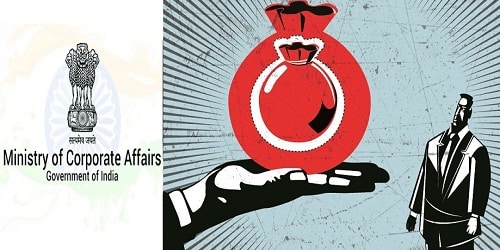On August 19, 2019, Ministry of Corporate Affairs has amended the Companies (Share Capital & Debentures) Rules by removing Debenture Redemption Reserve(DRR) requirement for Listed Companies, NBFCs(Non Banking Financial Company) and HFCs (Housing Finance Companies). This is done with the aim of reducing the cost of capital for businesses in the country as part of its 100 Days Action Plan of “ease of doing business” (plans made to be implemented on the first 100 days of the new government of prime minister Modi to improve the economy).
Key points
- The announcement was made by Nirmala Sitharaman(Finance Minister) in pursuance of the Budget announcements for 2019-20.
- The intent to remove the DRR requirement was made as it was considered a hindrance to NBFCs, raising money from public bonds.
Features:
- The companies will now be exempt from creating a DRR pegged at 25% of the face value of debentures, in respect of listed companies, NBFCs registered with RBI and for HFC registered with National Housing Bank (NHB).
- For unlisted companies, DRR requirement has been reduced from 25% to 10% of outstanding debentures to safeguard the interest of investors.
- Previously, listed Companies had to create a DRR for both public issues as well as Private Placement of Debentures, while NBFCs & HFCs had to create DRR only when they opted for Public Issue of Debentures.
Debentures: A debenture is a medium to long term debt instrument used by large companies to borrow money, at a fixed rate of interest.
About Debenture Redemption Reserve(DRR)
To protect debenture holders from the risk of default by the issuing company, Section 117C of the Indian Companies Act of 1956 implemented the DRR and made it mandatory. This rule offers investors a measure of protection, because debentures are not backed by an asset, a lien(a right to keep possession of property belonging to another person until a debt owed by that person is discharged), or any other form of collateral.




